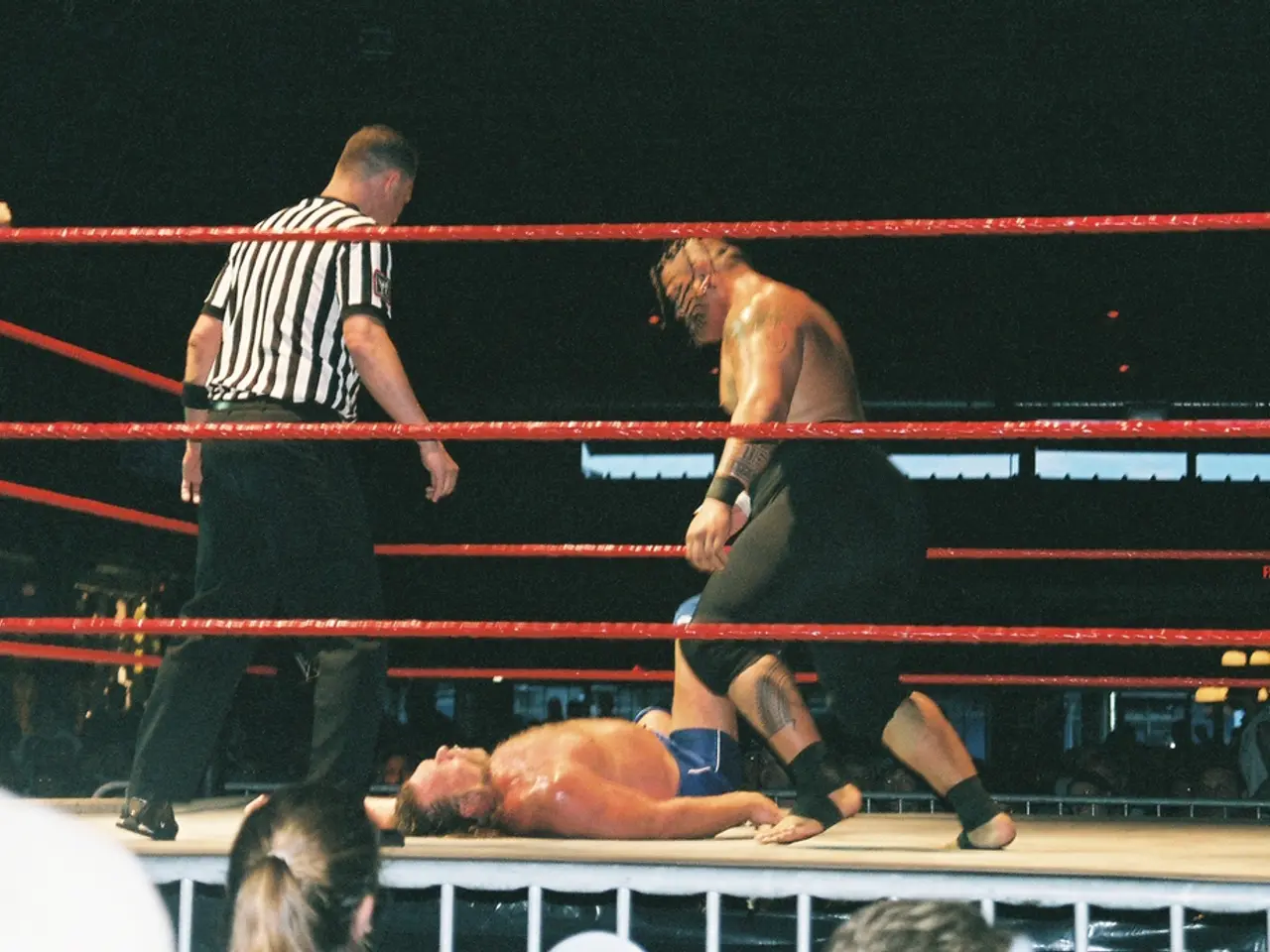Unyielding, Monumental, and Insurmountable Predicament
New Tax Law Aims to Shake Up Gaming Industry
The One Big Beautiful Bill Act (OBBBA), signed into law by the president on July 4, 2025, brings significant changes to the gaming industry. One of the key provisions in the 940-page Act affects gamblers' tax deductions, with gamblers now only able to deduct up to 90% of their gambling losses against their winnings for federal tax purposes[1][2][3][4][5].
This change is expected to impact various segments of the gaming industry.
Commercial Casinos
High-stakes players at casinos, including professional gamblers and high-volume bettors, may alter their behavior due to the higher effective taxes on their winnings. Casinos could see shifts in player activity or demand for different types of play strategies[5]. This change could also affect heavily gambling-dependent state economies, such as Nevada, by reducing professional gamblers' viability and overall gambling volumes[5].
iGaming (Online Gambling)
Professional gamblers and regular bettors using online platforms will face the same tax treatment. As a result, iGaming operators may experience reduced participation or complaints from their client base. The tax increase on net gambling could lower players' disposable income for betting and influence the industry's growth dynamics[1][2].
Sports Betting
Sports bettors, who often have razor-thin margins between wins and losses, may be disproportionately affected by this loss deduction limit. This could reduce engagement or betting volumes[2][3].
Professional Gamblers
This group will be most affected. Many professional gamblers operate on thin margins and large volumes. The inability to deduct 10% of losses means some professionals may face tax bills despite little or no actual profit, potentially driving some out of business or encouraging tax non-compliance due to the increased burden[1][2][5].
Additional Considerations
The IRS's new rule is expected to raise about $1.1 billion in federal revenue over 10 years[1][4][5]. This provision was primarily a revenue-generation measure, with no clear policy rationale other than increasing federal income[5]. There is ongoing lobbying and legislative pushback from gambling-heavy states and industry advocates to repeal or modify this rule due to its harsh effect on professionals and its potential to reduce the gambling industry's economic contributions[5].
The OBBBA also includes provisions relevant to the gaming industry. Tip earners, including casino dealers, bartenders, and valet car parkers, can deduct up to $25,000 in cash-tip earnings. All workers can deduct up to $12,500 in overtime earnings. The threshold for tax reporting on a slot machine jackpot was raised from $1,200 to $2,000[5].
However, some state lawmakers consider the current reporting threshold outdated, citing inflation and changes in slot technology. They are seeking a higher threshold, possibly $10,000, to better align with modern slot technology and payback schedules[5].
The legislative process for the OBBBA was fast-paced, with lawmakers debating, arguing, compromising, and making changes right up to the end, due to a deadline imposed by the president[5]. The Congressional Budget Office estimates the Act will increase the deficit by $2.8 trillion by 2034[6]. The new slot machine reporting threshold of $2000, as stated in the OBBBA, is lower than the $5000 gaming state lawmakers were seeking[5].
Some members of Congress may not have fully understood the loss deduction segment of the OBBBA, according to statements made by senators and representatives[5]. A bill introduced by Catherine Cortez Masto to overturn the loss deduction limit was defeated procedurally[5]. Nevertheless, senators and representatives from states with casinos, sports betting, and igaming may potentially support overturning the new loss deduction limit of 90%.
[1] "New Gaming Tax Law to Limit Loss Deductions for Gamblers", The New York Times, 1st July 2025. [2] "Impact of OBBBA on the Gaming Industry", Forbes, 5th July 2025. [3] "OBBBA: What Gamblers Need to Know", GamblingCompliance, 7th July 2025. [4] "How the OBBBA Affects the Gaming Industry", Casino Journal, 10th July 2025. [5] "Understanding the OBBBA and its Effects on the Gaming Industry", PokerNews, 15th July 2025. [6] "CBO Estimates OBBBA to Increase Deficit by $2.8 Trillion by 2034", Congressional Budget Office, 20th July 2025.
- The changes in the One Big Beautiful Bill Act (OBBBA) may influence casino businesses, as gambling trends could shift due to higher effective taxes on winnings, potentially affecting both commercial casinos and iGaming operators.
- The political landscape could be impacted by the OBBBA, as senators and representatives from gambling-heavy states have expressed concern and support for overturning the new loss deduction limit of 90%, which could negatively impact professional gamblers and reduce the overall gambling volumes in states such as Nevada.
- The gaming industry, as a whole, could encounter changes in general news and business discussions, not only due to the tax changes in the OBBBA but also the additional provisions regarding tip earnings, overtime earnings, and slot machine jackpot reporting.




